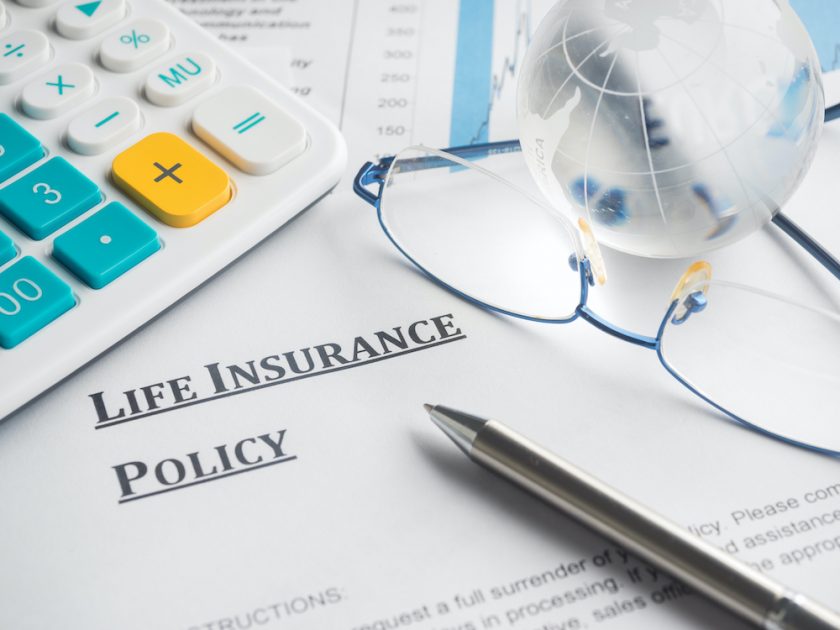When Should You Get Life Insurance: Is Life Insurance Worth It?
Life insurance is one of the financial milestones you’ll encounter once you start building a family. Unfortunately, many people put it off until they really need it, and in doing so, they miss out on the benefits of getting insured early on.
So, when should you get life insurance? Is there a set age?
The most important determiner is if anyone is dependent on you and your income. In our guide, we’ll be breaking down exactly what that means and what other factors you need to consider.

How Does Life Insurance Work
A life insurance policy is a legally binding contract or agreement between you and your chosen insurance company. When you buy life insurance, you’ll be asked to disclose all of your past and current health conditions, as well as any high-risk activities you engage in.
When the insured dies, the company pays the listed beneficiaries the value of the life insurance policy. This is called a death benefit. In order to enforce your life insurance, you must pay the company premiums.
It may be a bit morbid to think about, but if you have people that depend on you, a life insurance policy is a safe way to make sure they are taken care of in case anything happens to you. Life insurance gives you peace of mind and a way to tie up loose ends.
Though there are a variety of insurance policies, the most common are term life and permanent life plans. Knowing the costs and benefits of each will help you determine if it’s the right time for you to buy insurance and which you should go for.
Types Of Life Insurance
Term Life Insurance
Term life insurance lasts a certain number of years before expiring. Common terms range from 10, 20, or 30 years. You can choose which suits you best when you buy life insurance.
Term life is considered the most accessible and affordable life insurance policy, and includes a death benefit for your chosen beneficiary should you pass away before the term ends. Death benefits are often paid as a lump sum, but you may also choose to receive monthly or annual payments.
Level Term
Level term life insurance means that premiums are guaranteed to stay constant, while the amount of coverage increases over the policy’s duration. These policies include a death benefit as well.
You may want to consider this option if you’re looking to buy life insurance for long-term coverage. This type of insurance also benefits you if you acquire more medical issues over time. Premiums tend to be higher, but the cost is offset by the increase in coverage over time.
Decreasing Term
With decreasing term life insurance, the amount of coverage and death benefit decreases over time at a predetermined rate. Otherwise, it is mostly similar to level term insurance in its benefits and payments.
People commonly choose this type of insurance to pay off specific debt like mortgages and other loans. This life insurance may also be used for small businesses to protect against debt incurred from startup costs.
Permanent Life Insurance
Permanent life insurance means that your policy does not expire. So long as you keep paying the premiums, you are insured for life.
The premiums for this type are often much more expensive than term life, but they allow you to build up cash value. There is a waiting period after obtaining the policy wherein you cannot borrow or cash out, which enables money to accumulate.
People often withdraw this money to help pay their child’s tuition or to cover medical expenses – this is usually because policy loans are not taxable, the cash value you earn from this insurance will not be taxed.
Whole Life
Whole life is the most standard type of permanent insurance. You receive the death benefit, with an added cash value that grows over time and is withdrawable.
The disadvantage of a whole life policy is that the cash value feature adds fees on top of your payment, which makes the whole life policy a much more expensive option than term life insurance. You may want to consult financial advisors to make sure you can handle the costs.
Universal Life
Universal life is a more flexible type of permanent life insurance. Unlike whole life, this option allows for low and adjustable premiums. The death benefit is also adjustable and may be increased, though you may need to pass medical examinations to do so.
As with the other permanent life insurances, you can accumulate cash value. Keep in mind, however, that if you withdraw all of your cash value and stop paying the premium, your life insurance policy may lapse.

Do You Need Life Insurance?
The most commonly pushed notion about what age to get life insurance is “the younger, the better.” Though this is somewhat true, age alone isn’t enough to determine whether or not you need life insurance. The general rule of thumb is to get life insurance when someone else depends on you and your income.
There are many aspects of your life that you’ll want to evaluate before buying life insurance to make sure it's the right move at the time for you. We’ve broken down the most essential considerations below:
Factors To Consider
Age
Age is often the first thing that’s brought up in conversations about when you should be insured. This is because buying life insurance when you're young qualifies you for lower premiums. Another reason is that the older you become, the more health conditions you may have, which drives up premiums and makes it harder for you to qualify.
This isn’t to say that being young automatically makes it easy for you to qualify. Banks and companies are after higher premiums, so you shouldn’t buy life insurance solely because you are worried about qualifying for one when you are older.
A more pressing reason to get life insurance when you’re young is if you have student loans that you cosigned with your parents, or if you’re married – especially if one of you is the primary wage-earner.
Amount Of Savings And Cost of Living
For many people, life insurance is a way to guarantee personal debts are paid off after you pass away. Some debts are discharged after death, but unfortunately, others like mortgages, credit card debt, or student loans remain.
Cosigners on mortgages and joint account holders on a credit card are the first to inherit the responsibility. Otherwise, executors pay off these debts using your assets. Getting insured means that these things are settled and won’t eat into any inheritance you’ve left to your loved ones.
Dependents
This may be the most important factor in deciding when you need to be insured. Once you have dependents, you should be thinking of buying life insurance. Dependents are those that rely on you and your income, such as children, spouses, or even key employees if you own a business.
Insurance should replace your income if something happens to you. When picking a life insurance policy, it’s important to evaluate how many people rely on you, if they will be taken care of, and for how long.
Health
Your health is a big factor in determining when you need life insurance and what kind of policy you should have. Getting insured costs more money the more conditions you have. You shouldn’t be waiting until it’s too late to be insured – this will also give you peace of mind should anything happen to you.
Profession
Your profession may also play a big role in deciding if and when you need life insurance. If you run a business and have key employees that depend on you, a life insurance policy will ensure they are taken care of if anything happens to you.
Property
If you own property with a spouse or relative, insurance is a good way to make sure it’s taken care of. Life insurance is a good way to settle debt, pay taxes, and handle other fees.
Families may need insurance to maintain estates and cover capital gains funds, and guarantee that the property remains intact for their heirs to inherit.

How Much Insurance Do You Need?
Determining the size of your life insurance policy depends on your situation. You can start by estimating the expenses that your beneficiaries will face in the years after you pass.
A common way to estimate is to multiply your annual salary times 10 or multiply it by the years left until your retirement. Of course, when sorting out your actual policy you’ll want to be much more specific. This comes down to paying off debt, income replacement, and the ability to insure others.
Your life insurance policy should pay off your debts in full, plus extra to cover interest and additional charges. Calculating your policy to replace your income for beneficiaries is a little trickier because you’ll want to have enough to guard against inflation. There are online calculators you can use, or you can consult with financial advisors.
If your death constitutes a financial loss to the wellbeing of your loved ones, calculate accordingly. For spouses, you’ll have to factor in what they will earn short-term and long-term. If they are high-earning, you won’t need as big of a financial cushion. For parents with young children, you need to include major expenses every year until your child can support themselves full time.
Age and gender will also determine how much money you’ll be spending to get insured. Typically, men are more expensive to insure than women. Some charts can give you an estimated calculation based on age, gender, and rates.
Cost Of Waiting
Waiting to get insured can mean having to spend much more money. Delaying by just 10 years will have you paying more than double annually the rate you might have been paying 10 years earlier.
You may think you’re saving by not having insurance, but you’ll end up paying thousands more by delaying. Your health is a major factor in this.
Medical conditions can develop that either raise costs further or you could be declined outright. You never want to wait until you’re critically ill to purchase life insurance.
This is also based on the prediction of future insurance prices. In reality, it’s unknown where insurance prices are headed, meaning there could be sharp decreases or increases due to market conditions. Either way, you should buy it if you can afford it and need it – don’t wait until it’s too late!

Tips
- If you have an old insurance policy, consider having it reviewed. Your life may have changed drastically in the years since you purchased the policy, and it may make sense for you to buy more.
- Group insurance provided by employers is often not enough. Typically they only cover 3 times your salary. Additionally, if you leave or get fired from the company, you will be left without life insurance.
- Ask yourself early on, “what do I need for life insurance?” and get these things in order. Lifestyle changes may be necessary and can save you money. Remember that your health is assessed when you apply. The higher risk you are, the higher the cost.
- Choose a trustworthy and reputable company. Remember your insurance is only as good as the company you choose. If your insurer cannot pay claims, state guarantees might be able to cover the funds – but this is not always the case.
- Take advantage of the “free look period” if necessary. Some companies will allow you a period of around 10 days or longer to thoroughly review your policy. You can have your attorney or agent review the policy in-depth to make sure it suits your needs. If you decide it doesn’t within the timeframe, you can opt-out free of charge.
- Compare and shop around. Look at the different angles of each policy, not just monthly or yearly payments. Read through all the benefits and terms before you settle. You may want to enlist a financial advisor to help you decide which policy is best for your situation.
Conclusion
A life insurance policy can guarantee you and the protection of your loved ones, but it is also a major financial move. Knowing when, how much, and what type of life insurance you need will make sure you're getting the most out of your policy and money.
Getting started with life insurance can feel overwhelming, but this shouldn’t be a reason for you to delay. Don’t be afraid to seek out help from advisors or other financial professionals.
You can contact us at Wesley Insurance, LLC and we’ll assist you through any questions you may have, big or small. We’ll help you and your loved ones get the protection and peace of mind you deserve!